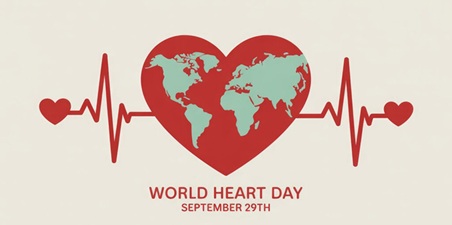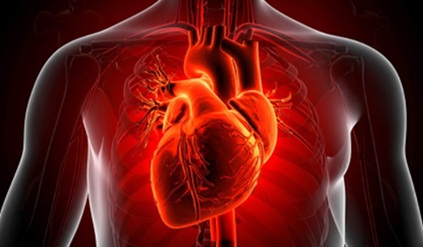Why in News ?
World Heart Day is celebrated worldwide every year on September 29. The theme for 2025 is 'Don't Miss a Beat'.

Background and History
- 1999: The World Heart Federation initiated this day.
- 2000: World Heart Day was first celebrated on September 24.
- Since 2011: It has been celebrated permanently on September 29 every year.
- WHO (World Health Organization), UNESCO, various governments, non-governmental organizations and medical institutions collaborate in this campaign.
Objectives
- To raise global awareness about the risks of diseases such as heart disease and stroke.
- To motivate people to adopt healthy lifestyles.
- To encourage governments and policymakers to prioritize the prevention and treatment of CVDs in health policies.
- To educate the public that heart disease is not limited to the elderly, but can also affect young people and children.
Significance
- This day reminds people that taking care of their heart is lifesaving.
- It provides an opportunity to prioritize preventive health measures at the individual, societal and government levels.
Global Perspective on Cardiovascular Diseases
- Cardiovascular diseases (CVDs) are the leading cause of death globally.
- It is estimated that 19.8 million people died from cardiovascular diseases in 2022, accounting for approximately 32% of all deaths globally. Heart attacks and strokes account for 85% of these deaths.
- More than three-quarters of deaths from heart disease occur in low- and middle-income countries.
Major Causes
- Unhealthy diet – high in salt, sugar, oil, fat, and processed foods
- Physical inactivity – lack of exercise.
- Smoking and alcohol consumption
- High blood pressure
- Diabetes and obesity
- Mental stress and depression
- Air pollution is also becoming a new leading cause of heart disease
Major Types of Heart Disease

1. Coronary Artery Disease
- Buildup of cholesterol and fat in the heart arteries blocks blood flow.
- This condition can cause chest pain (angina) and heart attack.
2. Heart Attack
- When a heart artery suddenly becomes blocked, the heart muscle is deprived of blood supply.
- This causes heart cells to die, and the patient experiences severe chest pain and shortness of breath.
3. Stroke
- When a blood vessel in the brain is blocked or ruptured, the blood supply is cut off.
- This can cause paralysis in some part of the body, difficulty speaking, or unconsciousness.
4. Congestive Heart Failure
- In this condition, the heart is unable to pump enough blood to the body.
- This results in swelling, difficulty breathing, and fatigue.
5. Arrhythmia
- The heartbeat becomes too fast, slow or irregular.
- This can cause fainting, dizziness, and sudden cardiac arrest.
6. Hypertension
- When blood pressure is consistently above normal, it is called high blood pressure.
- It can gradually put pressure on the heart, kidneys and brain, leading to serious illness.
Symptoms
- Chest pain or pressure
- Difficulty breathing
- Dizziness or fainting
- Extreme fatigue
- Swelling in the legs
- Irregular heartbeat
Prevention and preventive measures
- Healthy diet – fruits, vegetables, whole grains, low-fat foods
- Regular exercise – at least 30 minutes of physical activity daily
- Avoid smoking and alcohol
- Stress management – yoga, meditation, and adequate sleep
- Regular health checkups – periodic blood pressure, sugar, and cholesterol checkups
- Weight control
- Regular medication – if prescribed by a doctor for blood pressure/sugar/cholesterol
|
Q. What is the theme of World Heart Day 2025 ?
(a) Use Heart to Beat CVD
(b) Cardiovascular Health for Everyone
(c) My Heart, Your Heart
(d) Don't Miss a Beat
|



